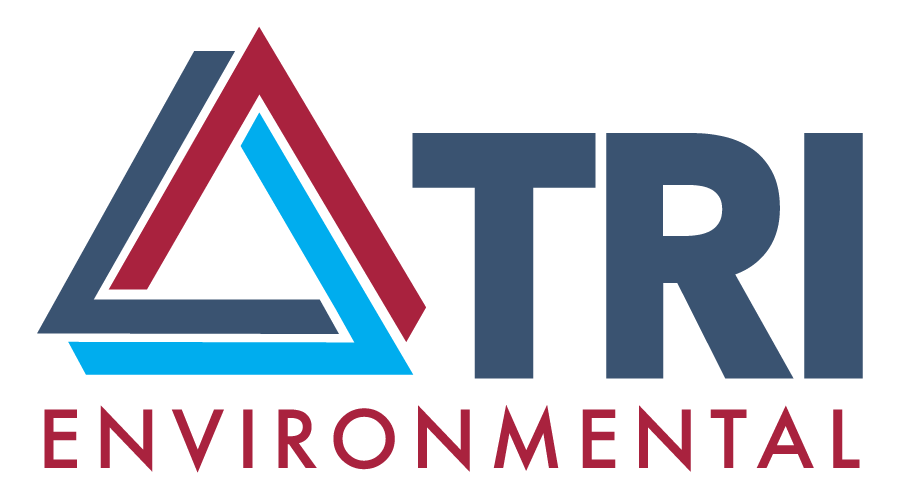
Denver Downs Research Facility (DDRF), South Carolina — USA
The Greenville, South Carolina campus of TRI/Environmental is an independent, third-party laboratory and full-scale erosion control, pipe testing, and trafficking testing facility.
Testing, Research & Reporting
DDRF provides the most extensive and comprehensive suite of erosion and sediment control-related testing in North America. Our 8-acre facility houses an ASTM-compliant, 20 ft. slope house containing 3 full-sized test slopes for the testing of both rolled and hydraulically applied erosion control products. The facility also has multiple flumes for high-velocity channel flow testing. DDRF has the facilities to provide full-service sediment control testing for the evaluation of toe of slope sediment barriers, inlet protection systems, and channel check dams. Additionally, DDRF has a large-scale concrete basin for the testing and evaluation of skimmer flow. The deep wave flume testing apparatus measures 100 ft. in length and 8 ft. in depth; it provides state-of-the-art shoreline protection system testing.
TRI is an official NTPEP (National Transportation Product Evaluation Program) erosion and sediment control laboratory. A full suite of bench-scale and index tests are also available for erosion and sediment control materials.
Pipe Performance
Our 10 x 10 x 8 onsite compact burial chambers are used to test the load baring capacity of various types and sizes of pipe and under up to ~30 ft. of fill. The chambers provide an excellent mechanism to demonstrate deflection and the effect it has on the long-term durability of pipe under load. A full complement of bench-scale and index tests is available for plastic pipes.
Trafficking
Full-scale trafficking tests have been recognized as necessary to fully characterize the complex soil-geosynthetic-aggregate interaction and its impact on performance and durability. DDRF has constructed a unique facility with a variety of real-world features, including inside and outside lanes, straight and curved sections, and the ability to accommodate paved and unpaved road test sections. The facility has been designed to minimize variations in the strength, depth, and consistency of subgrade, compacted aggregate, and paved surfaces. The facility delivers results in measurements that relate directly to the generally recognized road design methods.
Testing, Research & Reporting
The large-scale DDRF facility in Anderson, South Carolina is supported in the United States by two additional laboratories located in Texas and California. Together, these laboratories provide extensive testing capabilities: geosynthetics testing, geotechnical testing, soil interaction testing, plastic pipe testing, industrial glove testing, and testing of other materials. With 30+ years of experience and state-of-the-art equipment, TRI/Environmental has the skill and means to meet a broad range of industry needs, such as index and conformance verification testing, research studies, and report generation.
Support Services
TRI offers training, education and certification courses on topics such as Electrical Leak Location, Construction Quality Assurance (CQA) of Geosynthetic Installations, Geosynthetic Clay Liner and Compacted Clay Liner Systems, and the use of Pore Size Distribution (PSD) equipment. We proctor exams too, such as for the International Association of Geosynthetic Installers (IAGI) Certified Welding Technician (CWT) designation and the Geosynthetic Certification Institute’s Inspectors Certification Program (GCI — ICP). To learn more about currently scheduled classes, visit our education page. If you would like to schedule a private course for your company or agency, please contact SAllen@TRI-Env.com.
Liner Integrity Survey (Electrical Leak Location) provide a complete set of resources to help our clients test the integrity of geosynthetic lining systems in a variety of containment applications. These include landfills, potable and wastewater installations, and secondary containment for tank farms. Our powerful, standards-compliant methods and equipment are unrivaled for locating leaks in installed geomembranes in a variety of conditions, including exposed and soil or water-covered liners. For more information, visit the Liner Integrity Survey site.
Equipment Sales
Who better to design equipment than the people most familiar with it — the user! TRI has taken its decades of experience in testing equipment and applied it to the design and production of equipment needed by our clients, such as for their internal MQC protocols and product development. As an active user and industry participant, TRI is able provide high-quality equipment and training, education, certification, service and support for this equipment.
Liner Integrity Survey Equipment — State-of-the-art equipment used to test the integrity of geosynthetic lining systems in a variety of containment applications. We can provide equipment and training for you to perform your own surveys or to add surveying to your company’s current service offerings.
Pore Size Distribution Equipment — The TRI Capillary Porometer is specially designed for testing geotextiles. The Porometer generates the pore size distribution of woven geotextiles, and can be confidently used for Apparent Opening Size (ASTM D 4751 Method B) and water Permittivity (ASTM D 4491 Method C). Learn more.
Expert Staff
TRI’s personnel are active throughout the world’s standards development organizations and routinely provide short courses, seminars, and tailor-made training services for geosynthetics professional development. In order to serve our clients, we believe in and support the notion that staff must be active in the development and support of best practices throughout the industries we serve. Service to the various standards bodies, associations, and institutes that support these industries is central to our culture of expertise.
Our team participates actively on ASTM International’s Committee D35 on Geosynthetics and D18 on Soil and Rock. We are also active with ISO TC 221, the International Geosynthetics Society (IGS), the North American Geosynthetics Society (NAGS), the Solid Waste Association of North America (SWANA), the Geosynthetic Institute (GSI), the Plastics Pipe Institute (PPI), the International Glove Association, and the Geo-Institute of ASCE. In addition, we participate on major conference advisory boards (e.g., GeoAmericas 2016) and the editorial committees of trade publications (e.g., Geosynthetics magazine).
TRI South Carolina — USA
112 Martin Road
Greenville, SC 29607
Tel: +1 (864) 346-3107
Fax: +1 (512) 263-2558
C. Joel Sprague — Senior Engineer : JSprague@TRI-Env.com
Jay Sprague — Laboratory Director : JESprague@TRI-Env.com
